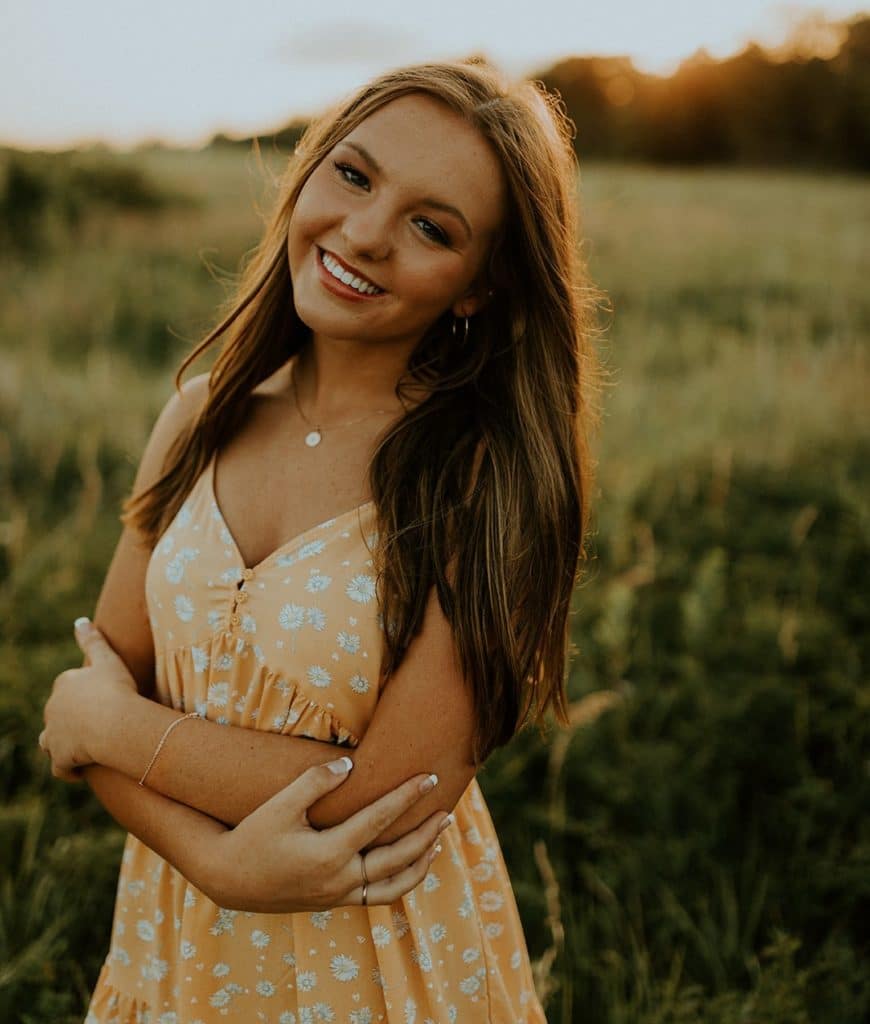Awareness doesn’t just bring attention; it also brings validation. And from that validation, people can develop empathy, respect, and consideration — for themselves as well as others.

This was the lesson learned by one of our Spring 2021 Disabled Scholar Award winners, Hayley Henke. When she was diagnosed with Juvenile Rheumatoid Arthritis at the age of seven, her reaction was to be embarrassed. She initially wanted to hide her condition, but her mother took the important step of bringing her to a convention sponsored by the Arthritis convention, where she found her sense of self. That experience has now motivated Henke to seek a career as a Pediatric Rheumatologist to ensure that other children with rheumatoid arthritis receive not just treatment, but compassion and understanding.
We at Auger & Auger are proud to play a supportive role in Henke’s journey. Her story has shown us how people can struggle with their own identity, but when they are able to get the validation and support they need, they are empowered to own that identity. We anticipate great things ahead for her. We have no doubt she will not only excel in her program but someday give patients that same transformative moment that inspired Henke as a young girl to learn to love herself and find strength within her identity.
Finding Self-Love After Self-Doubt Thanks to Community Support
Our society places a lot of pressure upon children to feel “normal” — despite the fact that we are all utterly unique. A consequence is that when a child suffers from a congenital condition, their natural reaction is to feel bad about themselves. Never mind that they had no choice in the matter, or that their condition doesn’t automatically color who they are.
The reality is that children all want to be accepted. They want to feel a sense of belonging. This can be a struggle for all children, but it becomes exponentially tougher when the child discovers they have a chronic condition.
In her essay submitted to us, Henke wrote: “Like any seven year old, I woke up eager to walk to school with my friends, but this was taken away from me when instead, I woke up in extreme pain and unable to walk. Approximately six months later, I was diagnosed with Juvenile Rheumatoid Arthritis.”
The impact of her diagnosis was two-fold. Not only did it mean pain and an inability to do certain activities, but it came with a stigma.
“Although I knew nothing about this condition, I didn’t want anyone to know,” Henke revealed. “I continued to hide my illness from my classmates to the point where I stayed home from school, crying all day any time my arthritis became noticeable.”
These intense feelings are a natural response, but they can hamper your ability to grow, flourish, and enjoy life. Seeing her daughter suffer, Hayley’s mother decided to take action. After seeing an email about a convention sponsored by the Arthritis Foundation, she booked a flight.
“I was too embarrassed to go,” Henke admitted. “However, I wasn’t given a choice in the matter as we flew to Phoenix, Arizona.”
Henke’s hesitation — all of it — dissolved once she saw that she was not alone.
“All my fears vanished the second we walked through the giant conference room doors. I saw people all around me who were suffering from the same illness. This moment truly changed my life.”
It was an abrupt transformation, from shame and shyness to ownership of her identity. For the first time, Henke was able to not just accept herself but to recognize her own potential.
“Not only did I become more comfortable with my arthritis, but I also finally began talking to people about my condition and embracing my new life.”
Henke was so motivated by this experience that she agreed to be an advocate for individuals with Juvenile Rheumatoid Arthritis. She was invited to speak to U.S senators and representatives from the state of Nebraska at the Capitol, and she became a Juvenile Rheumatoid Arthritis Ambassador for the Arthritis Foundation.
Advocating for Children Like Her on Capitol Hill — And, Someday, in a Clinic
Henke informed us that there are more than 300,000 children in the United States with a Juvenile Rheumatoid Arthritis diagnosis, “and yet there are fewer than 420 certified Pediatric Rheumatologists in the United States. This means that for every Pediatric Rheumatologist, there are 714 children with arthritis that need treatment.”
Speaking to congressional representatives on Capitol Hill, Henke emphasized the dire need to correct this situation. She proposed two policy solutions backed by the Arthritis Foundation:
- Allow pediatric subspecialists to be eligible to apply for the National Health Service Corps loan repayment program
- Grant Pediatric Rheumatologists subspecialists $35,000 “for each year of service if they commit to practicing in an underserved area of the country.”
Being outspoken about policy at such a young age could have easily intimidated Henke, but she was motivated by a desire to make a genuine difference.
“It was a little nerve-racking speaking in front of such important people,” Henke told us. “However, I knew that it was worth it because I was making a difference and advocating for people like me.”
Henke also recounted that she, “especially enjoyed meeting with congressmen individually and talking about their lives as well and what they could do to help children like me as an individual.”
Not content to merely advocate for solutions, Henke now seeks to actively address the lack of healthcare provider options for children with Juvenile Rheumatoid Arthritis. She intends to graduate from a medical school program and become a Pediatric Rheumatologist herself.
“Visiting different arthritis doctors, I have learned that they don’t know how it feels and truly can’t relate to me and my pain,” Henke disclosed. She knows that since she has the perspective of someone with the condition, she can help kids adjust mentally as well as medically.
The Importance of Feeling Recognized
While reading Henke’s essay, we could feel drive and passion infusing her actions and her story. She communicated the importance of feeling recognized and having shared experiences with others. As part of her commitment to doing so, she mentored a young 14-year-old girl with Juvenile Rheumatoid Arthritis. The girl told her a familiar story about coming up with any excuse to stay home from school and avoid the feeling of having her condition be thrust into the spotlight. Henke regularly spoke with the girl through Facetime and through text and helped her foster the confidence she needed to not only go back to school but also open up about her diagnosis.
When we asked Henke what she would say to another child in a similar situation, she replied: “I would tell them that if they stay strong and fight they will be okay.”
The important thing to remember, she noted, is that while a RA diagnosis can prevent you from doing certain activities, you can still seek out options that will help you still feel like a participant in life.
“Even though having arthritis can make life difficult,” she explained, “there are always ways to make things better. When finding out basketball and volleyball was too hard on my knees, I didn’t let it stop me from doing activities with my friends so I joined the cheer team and learned I actually love to cheer.”
Henke also noted the role that the community can play in helping children with chronic illness diagnoses succeed and flourish. When we asked her about how children can be motivated to perform well, she stated that “the most important thing about school to me personally Is the ability to have a good support system to teach and help you learn. Whether that be a great set of friends or teachers that know you personally. I think this is also the most important aspect for school in general too because many students with poor teachers or friends will struggle to succeed in school and many won’t continue their education.”
She also hopes that others can find the support they need and that it would be easier if more people were aware of children who suffer from arthritis and other chronic conditions.
“I would love it if more people knew about juvenile rheumatoid arthritis,” Henke said. “I know that many people don’t know or understand that children can get arthritis too, making it very difficult for children with arthritis to speak out and support themselves. So if everyone started advocating and understanding arthritis I think it would allow more children with arthritis to speak out and advocate for themselves.”
We are sincerely touched and impacted by Henke’s story, and we are confident that her accomplishments in the future will make a meaningful difference. In fact, based on her story, we know that she already has.
















